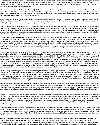Treatment of dissociative identity disorder: leveraging neurobiology to optimize success
- PMID: 38357897
- PMCID: PMC10950423
- DOI: 10.1080/14737175.2024.2316153
Treatment of dissociative identity disorder: leveraging neurobiology to optimize success
Abstract
Introduction: Dissociative identity disorder (DID) is a treatable mental health condition that is associated with a range of psychobiological manifestations. However, historical controversy, modern day misunderstanding, and lack of professional education have prevented accurate treatment information from reaching most clinicians and patients. These obstacles also have slowed empirical efforts to improve treatment outcomes for people with DID. Emerging neurobiological findings in DID provide essential information that can be used to improve treatment outcomes.
Areas covered: In this narrative review, the authors discuss symptom characteristics of DID, including dissociative self-states. Current treatment approaches are described, focusing on empirically supported psychotherapeutic interventions for DID and pharmacological agents targeting dissociative symptoms in other conditions. Neurobiological correlates of DID are reviewed, including recent research aimed at identifying a neural signature of DID.
Expert opinion: Now is the time to move beyond historical controversy and focus on improving DID treatment availability and efficacy. Neurobiological findings could optimize treatment by reducing shame, aiding assessment, providing novel interventional brain targets and guiding novel pharmacologic and psychotherapeutic interventions. The inclusion of those with lived experience in the design, planning and interpretation of research investigations is another powerful way to improve health outcomes for those with DID.
Keywords: Dissociative identity disorder (DID); dissociation; lived experience; neurobiology; neuroimaging; pharmacology; psychotherapy; treatment outcomes.
Conflict of interest statement
Declaration of Interest:
LAM Lebois has an unpaid membership on the Scientific Committee for the International Society for the Study of Trauma and Dissociation (ISSTD). They also report spousal IP payments from Vanderbilt University for technology licensed to Acadia Pharmaceuticals unrelated to the present work. ML Kaufman reports unpaid membership on the Scientific Committee for the ISSTD. CA Palermo and M Robinson report unpaid membership on the Scientific Committee for the ISSTD. Neither ISSTD nor any funding sources were involved in the analysis or preparation of the paper. The authors have no other relevant affiliations or financial involvement with any organization or entity with a financial interest in or financial conflict with the subject matter or materials discussed in the manuscript apart from those disclosed.
Figures
References
-
- American Psychiatric Association. Diagnostic and Statistical Manual of Mental Disorders. DSM-5-TR. Washington, D.C.: American Psychiatric Association Publishing; 2022.
-
-
Dorahy MJ, Brand BL, Sar V, et al. Dissociative identity disorder: An empirical overview. Aust N Z J Psychiatry. 2014;48:402–417.
**Comprehensive review of DID research highlighting the validity of the diagnosis and its treatability with appropriate psychotherapy
-
-
- Foote B Dissociative identity disorder: Epidemiology, pathogenesis, clinical manifestations, course, assessment, and diagnosis. UpToDate [Internet]. 2022. Mar 1 [cited 2023 Oct 31]; Available from: https://www.uptodate.com/contents/dissociative-identity-disorder-epidemi....
-
- Simeon D, Putnam F. Pathological Dissociation in The National Comorbidity Survey Replication (NCS-R): Prevalence, Morbidity, Comorbidity, and Childhood Maltreatment. J Trauma Dissociation. 2022;23:490–503. - PubMed
-
- Brand BL, Schielke HJ, Schiavone FL, et al. Finding solid ground: overcoming obstacles in trauma treatment. New York: Oxford University Press; 2022.
Publication types
MeSH terms
Grants and funding
LinkOut - more resources
Full Text Sources

